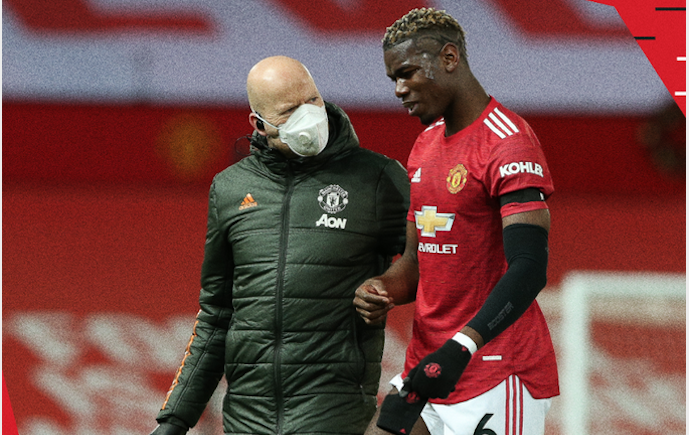EUROPE
FRANCE: The country is preparing for an unprecedented wave of redundancies and bankruptcies

The companies most affected by the crisis will not withstand the shock. Thousands of social plans, with processions of job cuts, are feared at the beginning. By Manon Malhère and William Plummer
Even if the government injects tens of billions of euros each month to try to save the Tricolour economy, it cannot avoid the inevitable: the multiplication of redundancies and social plans in companies that will not withstand the strongest recession since the end of the Second World War. When France was confined in March, Emmanuel Macron announced that «no company» would be delivered «at the risk of bankruptcy».But here, in this phase of gradual deconfinement, the executive now prepares the minds to the contrary. «There will be bankruptcies and there will be layoffs in the coming months», thus warned the Minister of the Economy, Bruno Le Maire at the microphone of Europe 1, last week.
For the time being, the wave of redundancies has not yet overwhelmed the French economy.From 1 March to 17 May, only 53 job protection plans (PES) or social plans – mandatory in companies with 50 minimum employees, starting from 10 redundancies – were initiated, for 2853 job cuts. The number of people registered at Pôle emploi increased by 7.1% in March, but this is mainly due to the non-renewal of short contracts or postponements of hiring.
The solicited lawyers
So far, France seems spared the redundancies.And for good reason, the economy found itself for two months in a form of lethargy largely maintained by the state. The executive has injected more than one million companies with its €110 billion contingency plan, which includes the very expensive short-time unemployment scheme. These actions, which weigh heavily on public finances, made it possible to avoid «a massive wave of redundancies», advanced at the end of April the Minister of Labour, Muriel Pénicaud. But the hardest part is yet to come.Many people who have been arrested and whose remuneration has been subsidized by public money – one in three employees in the private sector! – now at risk of losing their jobs.
There will be layoffs, for sure. But today, we cannot know the extent of them
François Asselin, President of the CPME
“All the indicators show a very sharp fall in production, very poor cash flow and repercussions on employment. I fear that mass layoffs will be inevitable,” said Raymond Soubie, President of the Alixio Human Resources Consultancy and former Nicolas Sarkozy Social Advisor at the Élysée. “There will be layoffs, that’s for sure. But today, we cannot know the extent of it», confirms François Asselin, President of the CPME. However, employers did not wait long to turn to lawyers. «From the beginning of the confinement, companies asked me to prepare social plans in the most affected sectors, such as the restaurant and hotel industry»,says Isabelle Mathieu, Associate Partner at Daem Partners.
The real blow could come in the coming weeks, after the gradual reduction of the veil of short-time work in sectors whose activity could restart. “The most difficult phase is ahead of us because we will have to get out of short-term unemployment. The State will continue to operate the system but without maintaining the current level of aid. The shock will therefore be very strong on the companies and on the employees», judge Raymond Soubie. Little by little, the employers affected by the crisis will have to financially insure the wages and expenses of the company without returning to a normal level of activity.
«Liquidity crises»
‘In this restart phase, companies could face real liquidity crises,’ warns Hector Arroyo, a restructuring partner at Baker Mckenzie.
At the time of the 2008 crisis, the safeguard plans had jumped and extended over nearly eighteen months. There were 1,052 in 2008 and 2,241 in 2009. This time, it is from the beginning of September that the death is expected. For companies already weakened, notably by the crisis of the «yellow vests» then by strikes against the reform of pensions, individual redundancies and social plans are difficult to circumvent. As proof, signs such as André, Naf Naf and Alinéa have already been placed in judicial redress. For its part, Renault is expected to hold a crisis meeting with the unions next Thursday. “As for the companies that have managed to maintain the bar thanks to State aid, they are waiting at least for the start of the new year before taking the decision to dismiss or not. They want to see if their activity will resume sufficiently and at what time», explains Deborah David, associate lawyer at De Gaulle Fleurance and partners.
The fact remains that the government, which has provided massive financial support, will certainly not rubber-stamp social plans. Quite the contrary. “Since the El Khomri law, economic redundancies are more flexible. However, companies that have received state aid may have to seriously justify their social plans,” warns lawyer Isabelle Mathieu. Aware of the risk, the Ministry of Labour is currently working on new arrangements upstream of PES to limit redundancies.
Pcas by prevention
For the time being, some companies are trying above all preventively to reorganise themselves to avoid heavy and costly redundancy procedures. And, ‘the Collective Performance Agreement (PCA) is the best tool to adapt to a cyclical crisis,’ says Deborah David. Provided for in the Penicaud ordinances, the Apcs signed to the majority of the unions offer the possibility to the companies to temporarily review the working conditions of the employees. With the APC, we can go down to the minimum wage but it never goes like that. Instead, we come to plane Rtts, increase the working time, or work a few holidays», explains Olivier Angotti, associate lawyer at FTMS.
“The economic dialogue will be key on the efforts to be made to maintain employment and it will be fundamental to know the intentions of employers, warned Marylise Léon, the Deputy Secretary General of the CFDT. And Esps have to be the last resort.” That’s what it says.
Source: Lefigaro/ By Manon Malhère and William Plummer
EUROPE
FRANCE – A French national arrested in Niamey

Stéphane Jullien was arrested on Friday, 08 September 2023 in Niamey. This French national has lived in Niger for eighteen years. He is the advisor of the French abroad in the country.
According to RFI, his arrest occurred while he was leaving the French Embassy. The Nigerien security forces found in his vehicle several cases including uniforms in the colors of the Burkina Faso army, says the same source.
Detained at the Niamey Prison
This import-export entrepreneur is held at the Niamey Prison. According to a French diplomatic source, Mr Jullien is accused of “complicity in the attack on the security of the territory”.
His case is managed by the Directorate General of External Security, according to RFI. This structure would be attached to the Nigerien Presidency.
“Our embassy is mobilized to ensure consular protection for our compatriot”
Yesterday Tuesday, September 12, Paris demanded his «immediate release» via a statement made public by the Ministry of Foreign Affairs. «Since the first day, our embassy has been fully mobilized to ensure consular protection for our compatriot» assures the Quai d’Orsay.
EUROPE
FRANCE – The government formally bans Abaya at school

The wearing of the abaya will be banned at school in France, announced the Minister of National Education Gabriel Attal, a decision made in the name of secularism and supposed to put an end to the controversies around this traditional long dress worn by some Muslim students. «I decided that we could no longer wear abaya to school,» Gabriel Attal told TF1 on Sunday, August 28, 2023.
The minister, who had since he took office this summer, wished firmness on questions of secularism, had judged that going to school in abaya was «a religious gesture, aiming to test the resistance of the Republic on the secular sanctuary that the School must constitute», promising firmness about it. «You enter a classroom, you must not be able to identify the religion of the students by watching them», he explained Sunday on TF1. The question of this traditional garment is sensitive, the French Council of Muslim Worship (CFCM) believes that the abaya, a long dress covering the female body, is not a Muslim religious sign. Its port is «more ambivalent than a veil» according to Haoues Seniguer, lecturer at the IEP of Lyon and specialist in Islamism.
In France, according to the law of 15 March 2004, «in public schools, colleges and high schools, the wearing of signs or dress by which students ostensibly manifest a religious affiliation is prohibited», a circular specifying these signs «the Islamic veil (..) the kippa or a cross of manifestly excessive dimension». The National Education had already seized the abaya in November, in a circular that considered this garment – like bandanas and long skirts, also cited – as outfits that can be prohibited if they are «worn so as to manifest ostensibly a religious affiliation».
The predecessor of Gabriel Attal, Pap Ndiaye, questioned by the unions of heads of establishment on the increase of the incidents related to these outfits, had however refused to «publish endless catalogues to specify the lengths of dresses».
increased attacks on secularism.
According to a note from the state services, of which AFP has obtained a copy, the attacks on secularism, much more numerous since the assassination in 2020 around his college of Professor Samuel Paty, increased by 120% between the academic year 2021/2022 and 2022/2023. The wearing of signs and clothing, which represents the majority of attacks, increased by more than 150% throughout the last school year.
The minister wanted to pay tribute on Sunday to the heads of schools “who are on the front line on these questions of secularism”, and promised to meet “as early as next week (…) to give them all the keys so that they can enforce this rule”. Bruno Bobkiewicz, Secretary General of the National Union of Management Personnel of the National Education Authority, responded to AFP, “The instruction was not clear now and we welcome it.” “Now that the message is out, it has to be implemented in the institutions (…) the heads of schools must not be alone against the abayas,” he added.
On the opposition side, the decision was applauded on the right, with Eric Ciotti (LR) leading on X (formerly Twitter): «We had repeatedly called for the ban of abayas in our schools. I welcome the decision of the Minister of National Education, who agrees with us.” On the left, however, Clémentine Autain (LFI) was outraged by the «clothing police», judging «unconstitutional» the announcement of Gabriel Attal, «contrary to the founding principles of secularism. Symptomatic of the obsessive rejection of Muslims.
EUROPE
FRANCE – Juan Branco after the release of Ismaëla Madior Fall: “He lies about the penal code of his own country”

The exit of the Senegalese Minister of Justice, Keeper of the Seals, Ismaëla Madior Fall announcing that the conviction of Ousmane Sonko in the case of morals which opposed him to Adji Sarr, surprised more than one. The French lawyer of Pastef’s leader, Juan Branco, was quick to react. On his account X (ex-Twitter), he retorts that the minister “lies about the penal code of his own country”, in a post he titled: “Plunged into the logic of an authoritarian power”
“In an interview with Jeune Afrique, this Thursday, August 31, 2023, the Senegalese Minister of Justice lies about the penal code of his own country,” the lawyer wrote.
Who seems to be surprised by this release of the minister. It is particularly revealing to see a Keeper of the Seals pronounce on an individual case in a foreign media, and even more, to see him lie about it in a shameless way”.
Before attacking the press that published the interview. It is also significant to see which medium is used for this purpose, in this case, a «press» organ that has long survived only thanks to the sale of advertorials in honor of the potentates of françafrique”.
According to the lawyer, Mr. SONKO is the main opponent of the Senegalese government, “whose president is a close ally of Emmanuel Macron”. Juan Branco: “Mr. SONKO, immensely popular, is an icon of the fight against corruption and françafrique, and threatens powerful interests. This led him to unfair proceedings, including rape charges for which he was acquitted, and to be sentenced in his absence to two years in prison for an offence for which he was not charged. This sentence, which is supposed to make him ineligible if it becomes final, was handed down on 1 June”.He also accused the government of wanting to make his client ineligible. Power has long sought to render ineligible, Mr. SONKO. Thus, a first defamation case was heard manu militari for this purpose, without success at this stage. This is how this new case tries to be used as a pretext to remove him from the electoral lists and thus prevent him from running in the elections of February 2024,” he said.
“In the meantime, he added, Mr. SONKO was arrested and detained for other reasons. The case is guignolesque: the Prosecutor initially justified his arrest by invoking a theft of mobile phone (sic), before, once the man placed in custody, to charge him with crimes of violation of state security, call for insurrection, terrorism, etc. It must be strange, for a presidential favourite, to pass in a few hours from a thief to a terrorist. Mr. SONKO, sent to pre-trial detention, immediately went on hunger strike and is currently in intensive care.” He believes that the Senegalese authorities are trying to save face.” Those authorities who have detained between 1,600 and 1,800 political prisoners, including lawyers, journalists, elected officials and activists, and who are piling them up in inhumane conditions, have since faced intense international pressure, and therefore try to save face”.
He recalled that: “Senegal has long been considered the pearl of law, an example in Africa. It is therefore very important to maintain appearances”.
According to him, “this is the meaning of this meeting of the Minister of Justice, sent to the front to convince the international opinion that everything is normal”.
Let’s deconstruct it patiently.
“The Senegalese law provides that when you have been tried in your absence, your arrest or constitution as a prisoner immediately annihilates the sentence in absentia of which you were the subject, so that a new trial is organized in accordance with your rights”says Branco.
Who adds: “It is a real rock in the shoe of power, because if they had to restart new procedures, they could not lead to a definitive condemnation before the elections of February 2024, and therefore prevent Mr. SONKO from being a candidate”.
-

 EAST AFRICA1 year .
EAST AFRICA1 year .TANZANIA – President meets with Chairman of the Board and CEO of the Merck Foundation
-

 BUSINESS8 months .
BUSINESS8 months .GUINEA – Authorities demand repatriation of mining revenues
-

 CULTURE2 years .
CULTURE2 years .AFRICA – African writers and artists celebrate the 20th anniversary of the African Union
-

 IMMIGRATION10 months .
IMMIGRATION10 months .AFRICA – Migrant smuggling brings 59 billion CFA francs to smugglers per year
-

 CULTURE1 year .
CULTURE1 year .SENEGAL – Massamba Guèye wants to democratize the story
-

 A LA UNE3 years .
A LA UNE3 years .GUINÉE: Manchester United: Paul Pogba absent several weeks
-

 CULTURE3 years .
CULTURE3 years .SENEGAL – “Sadik Lady” by Viviane Chidid
-

 MOROCCO1 year .
MOROCCO1 year .MOROCCO – The King of Morocco Mouhamed VI finally in Dakar, tomorrow Tuesday



